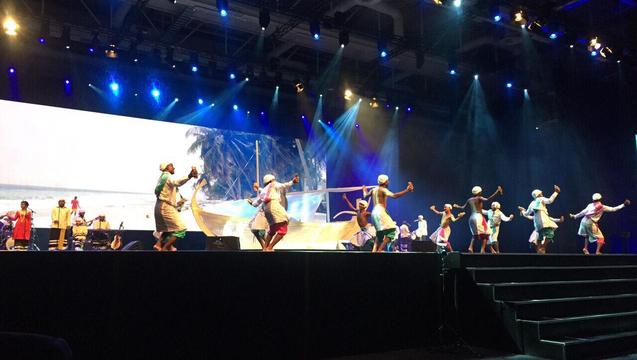Maldives brands ITB Berlin a success
Despite questions over safety for tourists, the Maldives-sponsored international tourism and trade fair ITB Berlin was a major success, Tourism Minister Moosa Zameer has said.

13 Mar 2016, 09:00
Despite questions over safety for tourists, the Maldives-sponsored international tourism and trade fair ITB Berlin was a major success, Tourism Minister Moosa Zameer has said.
Speaking to the press soon after his arrival in Malé, Zameer said Saturday that he had faced many questions over the opposition’s claim that the Maldives was the highest per capita supplier of recruits for the militant Islamic State.
But ministers had put in a special effort “to clear up misconceptions” about tourist’s safety, he said.
“When we spoke to journalists, they said they too have traveled to the Maldives, and that things were not as described. So they too know that there is no truth to these claims. But such talk will affect the Maldives somewhat. We will not let that effort succeed.”
Become a member
Get full access to our archive and personalise your experience.
Already a member?
Discussion
No comments yet. Be the first to share your thoughts!
No comments yet. Be the first to join the conversation!
Join the Conversation
Sign in to share your thoughts under an alias and take part in the discussion. Independent journalism thrives on open, respectful debate — your voice matters.




